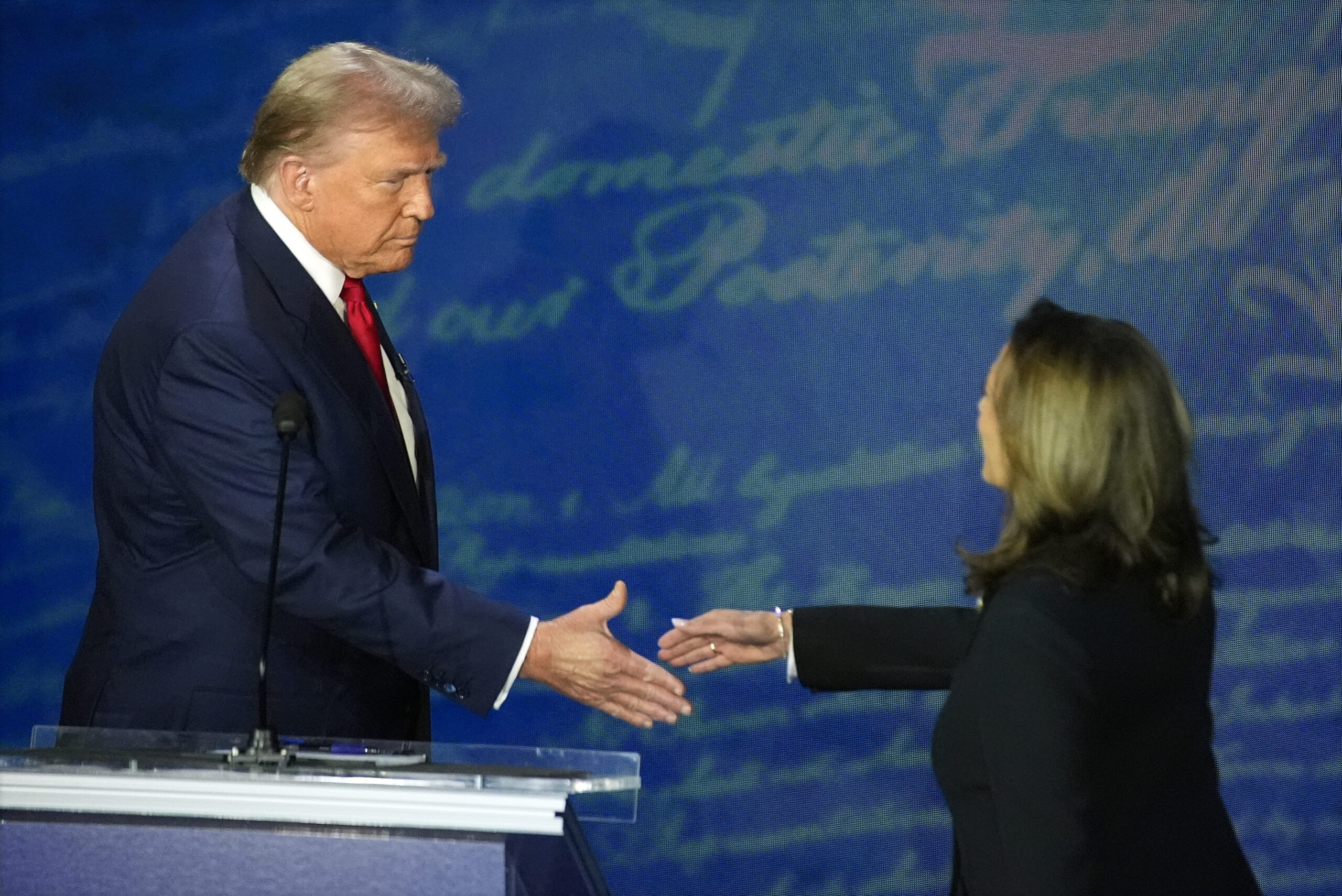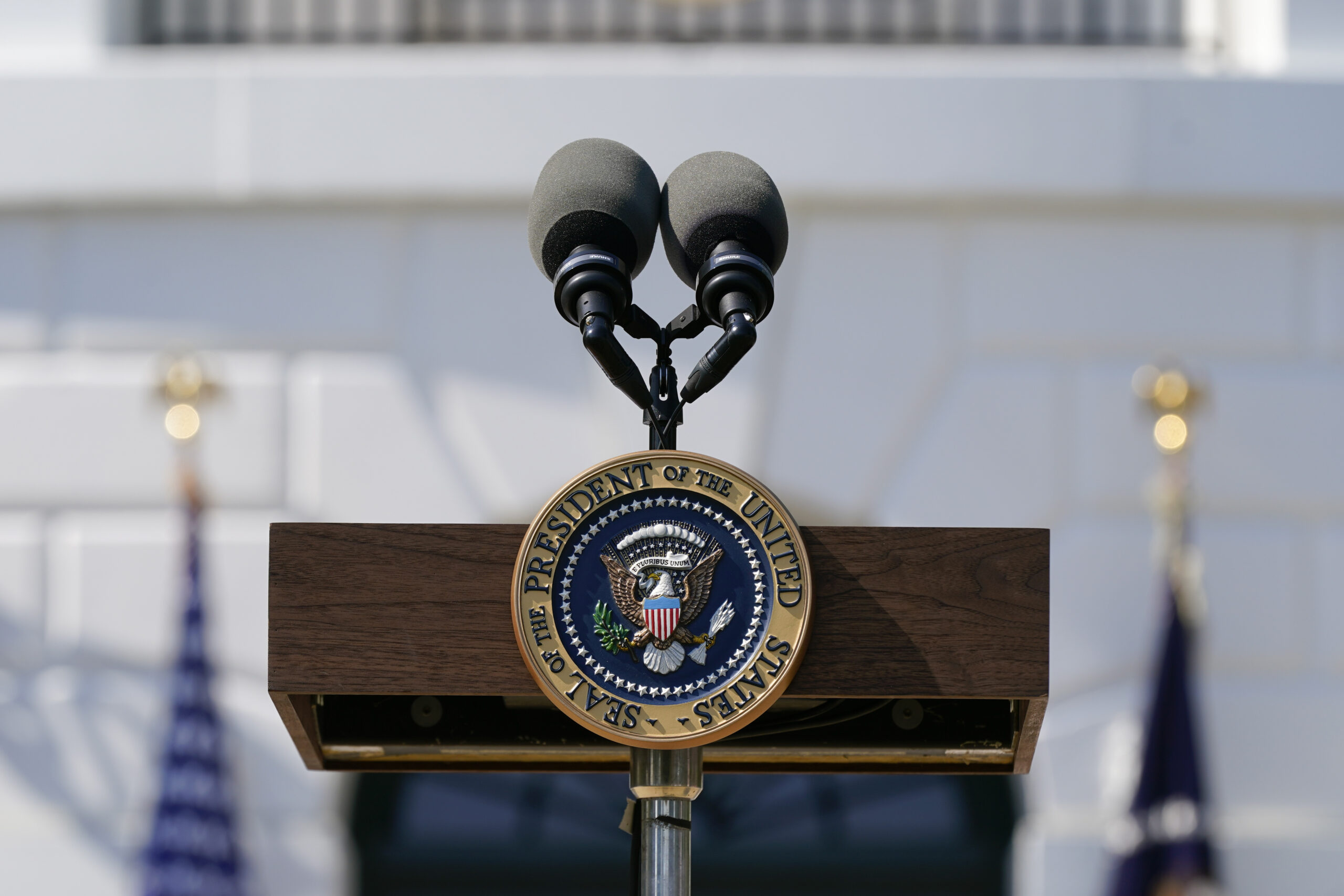For Gulf Countries, There May Be No Clear Preference Between Trump and Harris
GCC states will see advantages and disadvantages from either outcome in the U.S. presidential election but will rely on the persistence of long-standing ties.

This publication is part of AGSIW’s U.S. Presidential Election series.
Gulf Arab countries have a tremendous interest in the outcome of the 2024 U.S. presidential election, given how U.S. policies and leadership impact the region. Given those realities, it is essential, however, to try to gain an overview of how that electoral outcome might affect them in various ways. As with virtually all countries, U.S. foreign policy differs much less from administration to administration than rhetoric, ideology, or public expectations would suggest. General continuity is typically far more common than dramatic change. This is because even leaders with dramatically different positions than their predecessors inherit the same essential set of challenges and potential policy options because the country’s context for operating isn’t transformed by changes in leadership, government, or system. Nonetheless, there are some significant potential differences between the Democratic candidate, Vice President Kamala Harris, and her Republican opponent, former President Donald J. Trump, that could have implications for some aspects of these relations.
Neither Harris nor her Republican opponent is likely to fundamentally alter or abandon the partnership that has defined relations between Washington and the six Gulf Cooperation Council countries. Nothing in their agenda or rhetoric suggests otherwise. And even when candidates imply a major deviation from tradition – such as President Joseph R. Biden Jr.’s vow to treat Saudi Arabia as a “pariah” during the 2020 Democratic primaries – once they assume leadership and responsibility for national security, the shared core interests in regional security and stability compel the president to abandon such political rhetoric and repair personal relations, as Biden did with Riyadh with his visit to Jeddah 18 months after his inauguration, to maintain this crucial partnership.
Yet it’s possible to discern some differences in policy that could be significant for Gulf Arab countries depending on the election outcome. However, in considering those differences, the record of Harris as vice president, saddled with the foreign policy agenda of the president, is trickier to read for policy clues about how she might act if elected president than that of a former president. Already there are stories appearing in the media indicating Harris, if elected, might shelve the current administration’s preference for democracy versus autocracy.
Weapons Sales
On weapons sales, Trump is likely to be forthcoming because of his transactional and almost mercantile perspective. In her time in the Senate before serving as vice president, Harris joined others in seeking restrictions on arms sales to Saudi Arabia because of concerns regarding the war in Yemen and 2018 murder of Saudi journalist Jamal Khashoggi. In 2021, the Biden administration placed a temporary hold on offensive weapons sales to Saudi Arabia, however transfers were resumed in April amid heighted insecurity in the region. The campaign of attacks targeting commercial shipping in the Red Sea by Yemen’s Houthi rebels and their missile attacks against Israel and the United Arab Emirates may not have convinced Democrats of the wisdom of the Saudi-led intervention in Yemen that began in 2015 but have nonetheless gone a long way to vindicating the insistence by Saudi Arabia and other Gulf countries that the Houthis posed a significant threat to the region, and the Democrats’ increased recognition of this threat was clear in the State Department’s relisting of the Houthis as a specially designated global terrorist organization in January. Neither candidate is likely to remove the Houthis from this list during the next administration. Regardless of the Houthi threat, Harris is unlikely to restore the hold on offensive weapons transfers to Saudi Arabia, barring extraordinary developments.
A Triangular Deal?
Houthi piracy stands out as one manifestation of myriad efforts by nonstate-actor groups that identify with the Iranian-led “axis of resistance.” While the axis existed before the October 7 violence Hamas perpetrated on Israel, the Iran-Israel conflict has become more direct, less cloaked in proxy-group ambiguity in recent months. Trump and Harris are both likely to maintain Washington’s strong support for Israel against Iran, but they are likely to differ on the underlying issue of Palestinian national rights and Israel’s occupation. Harris was among the most outspoken members of the Biden administration on concern for Palestinian civilians and making relatively early calls for a cease-fire in Gaza. She has strongly reiterated support for a two-state solution and the establishment of a Palestinian state. In 2020, by contrast, Trump proposed Israeli annexation of up to 30% more of the occupied West Bank, including the Jordan Valley, which would leave any Palestinian entity entirely surrounded by a greater Israel. His team on Israel and the Palestinians was led by individuals closely aligned to Israel’s right and sympathetic to the settler movement, which seeks widespread annexation rather than a viable two-state solution. It’s hard to imagine that Harris would not be much friendlier to the Palestinian Authority and Palestinian aspirations than Trump, who is strongly allied with fundamentalist Christian communities that tend to be strongly supportive of the establishment of a greater Israel, hostile to Palestinian aspirations, and stridently supportive of Israeli maximalist claims.
The potential return of individuals sympathetic to Israel’s right and to the settler movement make it unlikely that Trump, in a second term, would pressure Israel to be more forthcoming on the need for a Palestinian state, as Saudi Arabia has been emphasizing in recent months. However, it’s conceivable that his aspiration to be a historic dealmaker could prompt a change in view. This Saudi imperative in one direction, and Israel’s intensified hostility toward Palestinian statehood in the other, have created an insuperable barrier to a proposed triangular deal that would involve a new U.S.-Saudi mutual defense agreement and an arrangement for U.S. oversight of Saudi nuclear energy production in exchange for Saudi Arabia normalizing ties with Israel. Given that this has been a Biden project, Trump may be keen to dismiss it, but he could alternatively try to find a formula of his own. Harris would almost certainly attempt to revisit the project but may find shifting Israel’s position virtually impossible.
The outcome of the Senate races will help determine whether there is any hope of a bilateral U.S.-Saudi agreement without an Israel component, but that variation on the original triangular deal may be politically unworkable in Washington. Yet the potential return of figures like Trump’s son-in-law, Jared Kushner, who remains close to Saudi Arabia, which has pledged billions for his investment fund, might provide a different avenue for creating closer ties. But given his hostility to fixed alliances, Trump is unlikely to be interested in a formal mutual defense pact with Riyadh. The UAE was hoping to obtain similar terms if a Saudi-U.S. defense agreement was secured, and other Gulf countries hoped to benefit indirectly as well.
Nuclear Energy and Oil
Trump might be more forthcoming on an agreement for the development of Saudi nuclear energy if it is profitable to U.S. companies and helps secure lower oil prices. But the Biden administration made significant progress on this issue, so Harris, too, could pursue this as a standalone bilateral project. On broader energy policy, Trump sought “dominance,” but under Biden, more quietly, the United States significantly increased its share of global oil production. Both Harris and Trump are likely to press for lower prices through increased production by the OPEC+ alliance. And although Trump may be more aggressive on this, a Harris administration could be more strongly opposed to the Saudi-Russian cooperation that underpins OPEC+. Trump rarely criticizes Russia’s policies under President Vladimir Putin, and this may extend to greater tolerance for OPEC+ coordination.
Nuclear Negotiations With Iran
Iran has been strongly signaling interest in renewed nuclear negotiations with Washington. If Tehran’s conflict with Israel can be contained, a Harris administration may seriously explore what is possible. Despite his trademark hostility toward Tehran, Trump’s dealmaking ambitions might also prompt him to take the possibility seriously, although it’s equally possible that anti-Iranian sentiments among Republicans will prompt a return to the “maximum pressure” sanctions from Trump’s first term that were designed to cripple the Iranian economy. Gulf countries will be in a much better position to seek to secure the inclusion of the issue of Iran’s militia network in any renewed negotiations, given the strong validations of these concerns during the past year of regional conflict following the Hamas attack on southern Israel.
No Clear Preference
Relations with Oman, Kuwait, and Bahrain are likely to remain stable and friendly under either a Trump or Harris administration. The UAE, though, has been the most adventurous in seeking strategic diversification and moving beyond a simple reliance on Washington. Abu Dhabi sought, but did not secure, an “ironclad” bilateral defense agreement with the Biden administration, although closer cooperation has been secured. It is likely to be careful to maintain close ties to Washington but also skeptical of both Harris and Trump. These four countries probably don’t have much of a preference for either candidate, although for different reasons. Qatar likely has lingering memories of Trump’s early strong support for the boycott of it by Saudi Arabia, Bahrain, the UAE, and Egypt that began in 2017. Yet given the rapprochement agreed upon in January 2021, Qatar probably has little reason to be concerned about the now moribund boycott issue. Nonetheless, the existence of a pro-Israel Republican constituency that is passionately hostile toward Qatar could create some problems for Doha. A Trump victory might make it more likely for Qatar to stop hosting the Hamas political leadership. A Harris administration might similarly insist that Doha finally abandon this hospitality and support, although it is unlikely to press the issue as fervently.
The biggest differences between Trump and Harris for GCC countries center on predictability and attitudes toward traditional partnerships. Like Biden, Harris represents continuity with the post-World War II U.S. foreign policy strategy based on alliances and partnerships, whereas Trump has at times been uniquely hostile to them. But since GCC countries don’t rely on fixed treaty alliances with Washington, they have less to lose from Trump’s isolationist tendencies than many other countries, such as NATO members. Yet because Harris represents a traditional U.S. approach that emphasizes continuity and clear policies, she may offer a greater degree of reliability for all of Washington’s long-standing partners. Trump’s highly personalized approach that de-emphasizes traditional and even coherent policies in favor of his own political interests and personal impulses introduces significant unpredictability into Washington’s international conduct. Some Gulf countries, notably Saudi Arabia, were initially enthusiastic about the highly personalized first Trump administration, especially given his choice of Riyadh as his first trip abroad as president. Yet the unpredictability of his approach led to a shock at the Trump administration’s failure to respond to the 2019 Iranian missile and drone attacks on key Saudi Aramco oil facilities.
These broad distinctions between the two candidates don’t suggest a clear preference for either among any of the Gulf countries, with each offering potential advantages and disadvantages. The GCC countries can expect, though, most aspects of the relationship with Washington to remain unchallenged by either outcome. The long-standing partnerships all six countries have, in both different and similar ways, with the United States will almost inevitably persist because they are so strongly in the national interests of both sides.
The views represented herein are the author's or speaker's own and do not necessarily reflect the views of AGSI, its staff, or its board of directors.


























